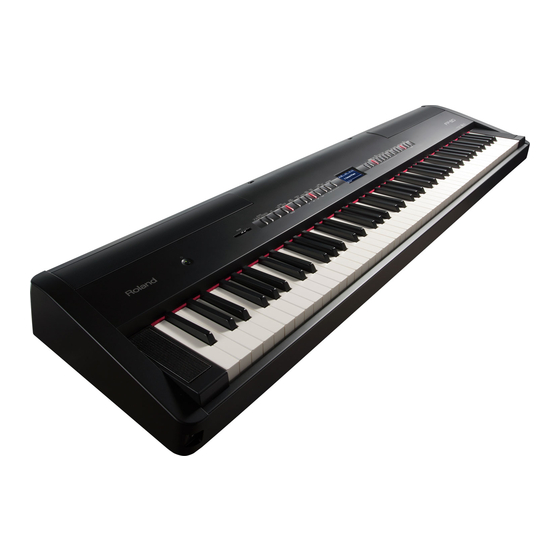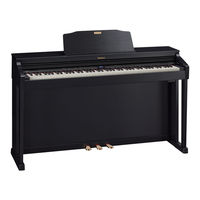
Roland FP-80 Digital Piano Manuals
Manuals and User Guides for Roland FP-80 Digital Piano. We have 2 Roland FP-80 Digital Piano manuals available for free PDF download: Owner's Manual, Quick Start Manual
Roland FP-80 Owner's Manual (76 pages)
Brand: Roland
|
Category: Digital piano
|
Size: 37.19 MB
Table of Contents
Advertisement
Roland FP-80 Quick Start Manual (2 pages)
Loading/Saving Piano Setups
Brand: Roland
|
Category: Musical Instrument
|
Size: 0.29 MB

